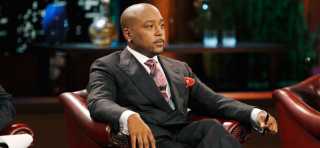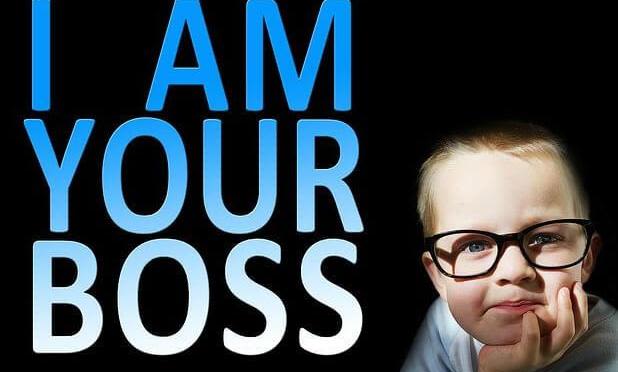Entrepreneurs must lead their organizations with service and humility
You must be diligent not to allow your style and personality to stop you from serving those you lead.

Daymond John: Millennials lead in smart business technology

Pakistani economy cuts deficits in half in 2015

Android MOTO 360 2nd Generation review: A premium design

The primary goal of every entrepreneur is to become successful. Success is attainable through hard work. But becoming a successful leader as an entrepreneur is important to your future success.
Business leadership must outdo style and personality
In business, every entrepreneur follows a particular style of operation. Personality may motivate this. Sometimes, entrepreneurs follow a particular style of operation that is motivated by the innovative ideas upon which the business starts.

When a business grows, the company hires other workers or forges partnerships. You must be diligent not to allow your style and personality to contradict or break a general business rule. The rule is leadership with service.
Inspire to be a business leader who serves
Every entrepreneur must find inspiration to become a leader instead of a boss. Whether you strive to become an inspiring leader or a boss, remember you are occupying a leadership position that must also recognize serving those you lead. A good business leader must preserve the dignity and pride of business leadership with true service, and inspire others to follow his lead.
"People ask the difference between a leader and a boss. A leader leads, and a boss drives.”
The benefits of striving to become a great and successful leader are many. But the temptation to make certain decisions without consulting your lieutenants is a negative proposition. To be domineering and arrogantly authoritative can kill a thriving enterprise.
It is therefore important to understand every stage in your business. This will help you provide a holistic approach to leadership with your workers or partners in mind.
One thing I have found so impressive over the years is a united family. Both husband and wife and their children share their pain together and celebrate their successes together. This family model can also be applied in the workplace.
Theodore Roosevelt, a celebrated American president, did not mince words when he e said, "People ask the difference between a leader and a boss. A leader leads, and a boss drives.”
Most businesses are shipwrecked today. This is because of leaders, who instead of leading, drove their workforce to a dead end. Here are the overwhelming differences between a leader and a boss.
Differences between business leaders and bosses
A leader is always available to take part in business activities. A boss sits on a fence and waits for results. When business activity goes wrong, a leader takes the blame and ratifies the situation. A boss blames everybody and expects the problem to be fixed. A leader gives credit to his workers. A boss acts as if he did it all by himself and brags of unmerited achievements.
A leader involves his workers in decision making. A boss decides what to do at every stage. A leader ensures that his workers obtain the feedback needed for improvement. A boss withholds information and waits until you fail.
A leader shows respect to his workers. A boss does not consider if he repeatedly hurts them. A leader makes it possible for his workers to excel. A boss fears to be overtaken. He closes every opportunity for progress.
Serve and be served
As an entrepreneur, your world view of success must be proactive. You must be the leader who leads by example. Remember that every move you make is being monitored and what you say is equally being analysed. If you open the doors of engagement, your workers will help you know where you fall short.
This will help you make expedient and applicable amends quickly. If you do not, many things will go wrong which can not be ratified. The people you work with will serve you when they know you are equally ready to serve them.
It is important to become humble to develop a personality of an inspirational leader. You will conquer the draw-back attitude of a superiority complex.

Enoch Antwi
Enoch Antwi is the managing editor at The Business Frontal. He worked as a business and an environmental journalist in the late 1990s with the Business and Financial Times. His passion is to provide on-demand valuable information and insights on business, entrepreneurship, leadership, innovative technologies, and principles for corporate success in today's business world.
More from Entrepreneur

Trade area secrets generate leads and maintain customer relations

Profitable business campaign tips for brand awareness

Entrepreneurship passion pioneers lasting business success

Entrepreneurial leadership lessons from billionaires

Smart investments: Make money with or without money

Entrepreneurship role assists competitive business for economic development

Entrepreneurship opportunities for aspiring business leaders

Most profitable small businesses in the United States

Entrepreneurship business plan tips to attract investors

Entrepreneurship trend in 2015: Where is it going?

Social entrepreneurship makes a better living


